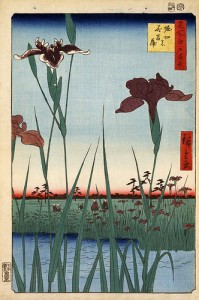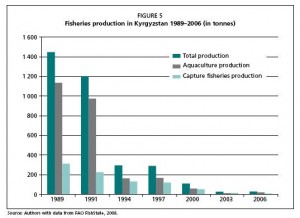- There are 227 bee species in New York City. Damn! But not enough known about the work they (and other pollinators) do in natural ecosystems, alas.
- Borlaug home to be National Historic Site?
- Archaeobotanist tackles Old World cotton.
- FAO suggests ways that small farmers can earn more. Various agrobiodiversity options.
- About 400 new mammal species discovered since 1993 (not 2005 as in the NY Times piece). Almost a 10% increase. Incredible. Who knew.
- But how many of them will give you nasty diseases?
- The caribou wont, I don’t think. And by the way, its recent decline is cyclical, so chill.
- Saving the American chestnut through sex. Via the new NWFP Digest.
- “The best thing IRRI can do for rice is to close down and give the seeds it has collected back to the farmers.” Yikes, easy, tiger! Via.
Tri-Societies meeting programme revealed
The programme for the ASA-CSSA-SSSA International Annual Meetings in November is up. The genetic resources sessions look very solid, as ever. And the prestigious Calvin Sperling Memorial Lecture is to be given by our friend, colleague and occasional contributor Robert Hijmans on a topic we’ve blogged about often here, climate change and agrobiodiversity.
Nibbles: Dogs squared, Afghanistan’s poppies, Rice at IRRI, Book on sapodilla chicle in Mexico, Opuntia, Trees
- DNA survey of African village dogs reveals as much diversity as in East Asian village dogs, undermines current ideas about where domestication took place.
- Fossil doubles age of dog domestication.
- “When children felt like buying candy, they ran into their father’s fields and returned with a few grams of opium folded inside a leaf.”
- “The rice, a traditional variety called kintoman, came from my grandfather’s farm. It had an inviting aroma, tasty, puffy and sweet. Unfortunately, it is rarely planted today.”
- “An era of synthetic gums ushered in the near death of their profession, and there are only a handful of men that still make a living by passing their days in the jungle collecting chicle latex…The generational changes in this boom-and-bust lifestyle reflect a pattern that has occurred with numerous extractive economies…”
- Morocco markets prickly pear cactus products.
- TreeAid says that sustainable agriculture depends on, well, trees.
Iris in Japan and Tuscany
We went to the Hirishoge exhibition here in Rome some time ago, and very impressive it was too, but I don’t remember seeing this particular woodcut.

I’ve in fact only just come across it, on Flickr, where there is this fascinating commentary:
In the village of Horikiri in suburban Edo, gardeners grew a year-round variety of flowers and were particularly famous for the iris shown here, “hanashobu,” well suited to this swampy land. In this print Hiroshige has shown three, almost-life-size, detailed specimens of the nineteenth-century hanashobu hybrids and in the distance, sightseers from Edo are admiring the blossoms. In the 1870’s the cultivation of hanashobu had begun to spread rapidly in Europe and America and the developed into a booming export market for the gardeners of Horikiri. The Horikiri plantations began to wane in the 1920’s and eventually turned over to wartime food production. After the war, one of them was revived and is now a public park, particularly popular in May when the flowers are in bloom.
Report on the future of inland fisheries in Central Asia is out
This is what’s happened to inland fisheries pretty much throughout Central Asia since the fall of the Soviet Union:

According to an FAO report just out, that is. There’s some limited scope for optimism, though.
Somewhat belatedly, attention is now being focused upon the reactivation of the fisheries sector with the emphasis very much on aquaculture as it is unlikely even in the Caspian Sea that capture fishery could ever again assume the same importance as in yesteryear. Led by private entrepreneurs, and with the active prompting of national fisheries departments and foreign donors, fisheries are being slowly restored to the developmental agenda. This is no easy task, given both the general failure to recognize the role the sector can play in national development and poverty alleviation strategies and the continued lack of legislative clarity, although the latter is gradually being rectified in a number of the countries.
It will be interesting to see whether any recovery is based on a reasonable foundation of fish diversity (Kazakhstan has 150 fish species), or just the usual one or two aquaculture suspects.